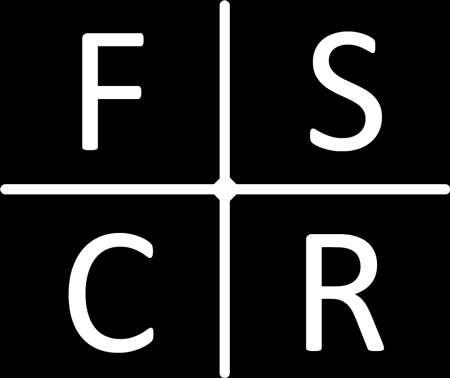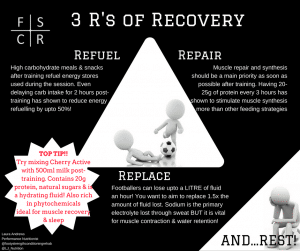And here we go again….
This weekend marks the beginning of the season, and with it, players will hopefully return to a steady routine of training, fixtures, rest and recovery. Start of the season usually brings with it a more congested fixture period, particularly with the added cup games. Therefore, getting your nutrition right will not only help you recover from your game but also help prepare you for the next one.
If you are playing 90 minutes every game, chances are your energy expenditure could be up to 4000kcal per game (dependent on playing position) (1) therefore your aim first and foremost, should be to refuel energy stores. Carbohydrates are our body’s primary energy source, particularly during high intensity and intermittent sports, therefore the bulk of your post-match meal should be made up of carbohydrate rich foods – rice, pasta, potatoes etc. Many players often find themselves avoiding carbohydrates as they believe this can lead to excess body fat (another topic for another time), however, pre- & post-match are the ideal time to consume a high carbohydrate diet, not just for fuelling and refuelling purposes, but also to help reduce risk of injury and illness (2).
A large aspect of recovery nutrition is repairing muscle damage and promoting muscle synthesis post-match, and this should start as soon as possible. Most recovery strategies recommend that there is a “window of opportunity” for optimal recovery to take place based on the assumption that protein synthesis is greatest immediately post-exercise (3). The literature out there is limiting on an actual “window” time frame, however, most agree that the “sooner the better approach” is best, with some indicating that 2 hours, refueling and repair start to decline (4).
There is a huge temptation to go out after a game and have a “treat meal” and beers, and you should be able to use this time effectively and indulge when you might not normally would. However, excess fat and alcohol intake will only slow down the carbohydrate storage and muscle synthesis, therefore the standard “Dominos” post-match won’t be beneficial at all, and could actually hinder your performance in the next couple of days. I ask my players to give me TWO hours. Two hours where they prioritise their recovery nutrition, eat the right amount of carbs and protein, drink plenty of hydrating fluids. Then they can enjoy the “treat meal”.
Ideal post-match meals:
-
200g cooked pasta with 125g grilled chicken breast & tomato based sauce
-
200g cooked rice with 5% lean beef chilli
-
Grilled chicken burgers & baked sweet potato wedges
-
Large jacket potato with tin of baked beans
-
Large homemade fruit flapjack & protein shake
References
1. Anderson, L, Orme, P, Naughton, R, Close, G.L, Miilsom, J, Rydings, D, O’Boyle, A, Di Michele, R, Louis, J, Hambly, C, Speakerman, J.R, Morgans, R, Drust, B and Morton, J.P (2017) Energy Intake and Expenditure of Professional Soccer Players of the English Premier League: Evidence of Carbohydrate Periodization. International Journal of Sport Nutrition & Exercise Metabolism, 27: 228-238
2. Burke, L.M, Hawley, J.A, Wong, S.H, Jeukendrup, A.E (2011) Carbohydrates for Training and Competition. Journal of Sport Sciences, 29: 17-27
3. Luttrell, M.J and Halliwill, J. R (2015) Recovery from Exercise: Vulnerable State, Window of Opportunity or Crystal Ball? Frontiers In Physiology, 6:204
4. Burke, L.M (2010) Fasting and Recovery from Exercise. British Journal Sports Medicine, 44: 502-508.

